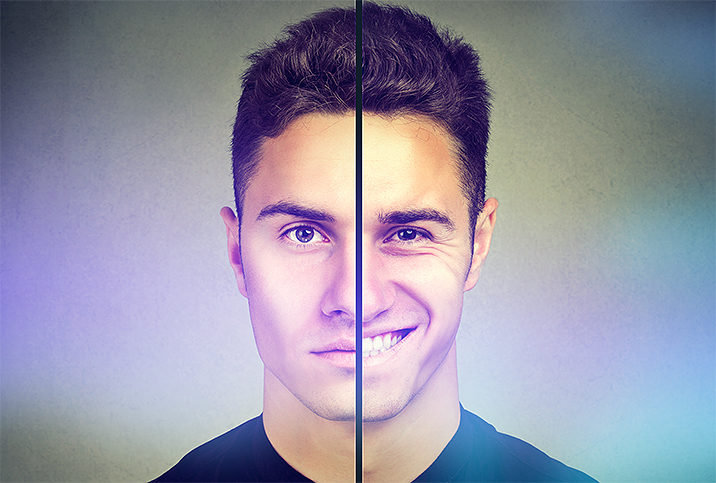Which Type of Therapy Approach Is Right For You?

Before you think of undergoing therapy, there's an pivotal step to take: Finding a therapist who specializes in your particular mental illness or issue. For the most part, it's challenging enough to find a specialist you enjoy speaking with, let alone someone who treats specific disorders, but the search is easier if you know what you're looking for from square one.
Can we talk?
The most common type of therapist is a talk therapist—also known as a psychotherapist—who might be considered a licensed mental health counselor (LMHC), psychologist or licensed clinical social worker (LCSW) depending on their degree of schooling.
As their name suggests, talk therapists use the act of speaking to communicate with patients and help them find solutions and coping mechanisms. Psychiatrists are able to prescribe medicine in addition to talking to their patients; both psychotherapists and psychiatrists can specialize in specific disorders. Again, depending on their degree of schooling and their experience, your own therapist may refer you to another who specializes in your particular diagnosis.
"Your therapist may have a recommendation based on your symptoms, needs, treatment history and goals," explained Lillian Rishty, LCSW Psychotherapist and founder of NYC Therapy Group. "Because different illnesses respond differently to different techniques, it's helpful to consult the research that shows the method most effective for treating your symptoms."
'Some approaches work best for specific issues, while others can help with a range of diagnoses. Many therapists use a combination of approaches and tailor their methods to meet your needs.'
Rishty is a certified anxiety specialist by the National Association of Cognitive-Behavioral Therapists as well as a certified eating disorder and weight loss specialist. She is also certified in Eating Disorder Intuitive Therapy (EDIT)™ and will soon be a certified complex trauma professional (CCTP). However, if a client experiences a problem outside of her specializations or scope of work—such as sex therapy, marriage counseling, postpartum depression or obsessive-compulsive disorder (OCD)—she may refer them to someone else.
"Some approaches work best for specific issues, while others can help with a range of diagnoses," Rishty said. "Many therapists use a combination of approaches and tailor their methods to meet your needs. It's also common to try one approach, and if it doesn't work for you, then try another type. The best way to know if it will work for you is to actively try it."
Research indicates certain types of therapies work better for certain diagnoses. However, these therapies can be done alone or in conjunction with other therapies and some methods may overlap, or could depend on the individual vs. diagnosis.
Cognitive behavioral therapy
According to the Mayo Clinic, cognitive behavioral therapy (CBT) helps people become aware of inaccurate, maladaptive or negative thinking so they can change their thought patterns and respond to challenging situations in a more effective way. CBT helps people see logic, facts and evidence as opposed to perceptions. It also focuses on how thoughts, feelings and behavior influence each other.
This type of therapy is only meant to last for a specific amount of sessions. When I went to a cognitive-behavioral therapist, for example, we met weekly for three months. We targeted specific obsessive thoughts and compulsions with various techniques. Instead of talking or venting my problems and looking for insight the way I would in psychotherapy, it was all about learning triggers as well as solutions to my OCD.
People who want to change their thought patterns can benefit from cognitive behavioral therapy, including those with OCD, PTSD, eating disorders and addictive behaviors.
Other behavioral therapy techniques within CBT may include systematic desensitization, rational emotive behavior therapy (REBT), exposure therapy and acceptance and commitment therapy (ACT), which focuses on eliminating maladaptive, learned behaviors, and learning new ones.
"Behavioral therapy can teach new techniques to cope with stressful situations and identify and replace automatic negative thoughts," Rishty said.
Activity-based therapy
"Activity-based therapy [ABT]—which can include art, dance, music and exercise—can allow a person to alleviate distress or explore how they're feeling through alternative methods," Rishty said.
In addition to those who have faced a severe injury impacting their neurological functioning, people with mental illnesses can also benefit from ABT. Those who are dealing with trauma or addiction can participate in calming activities to shift their focus, connect with their emotions, process their feelings and express difficult thoughts and memories.
Dialectical behavioral therapy
"Dialectical behavioral therapy [DBT] was created to treat borderline personality disorder. But since it is a modified type of CBT, it is also used for other things like depression and suicidal thoughts," Rishty explained.
Unlike cognitive behavioral therapy, DBT focuses more on helping people change their behavior patterns, as opposed to trying to just change their thought patterns. Dialectical behavioral therapy can help people regulate their emotions, be mindful, and learn to accept pain.
People with borderline personality disorder (BPD), sexual trauma, substance use and chronic thoughts of suicide may seek out dialectical behavioral therapy as their therapy of choice. Some patients use a mix of CBT and DBT to achieve their recovery goals.
Dialectical behavioral therapy techniques may include developing mindfulness skills, distress tolerance—for example, distraction or self-soothing—and positive relationships.
"The best form of therapy can be an individual choice. In addition to the research, the effectiveness also depends on what that individual is open to, interested in, and responds well to based on history and symptoms," Rishty concluded.




















